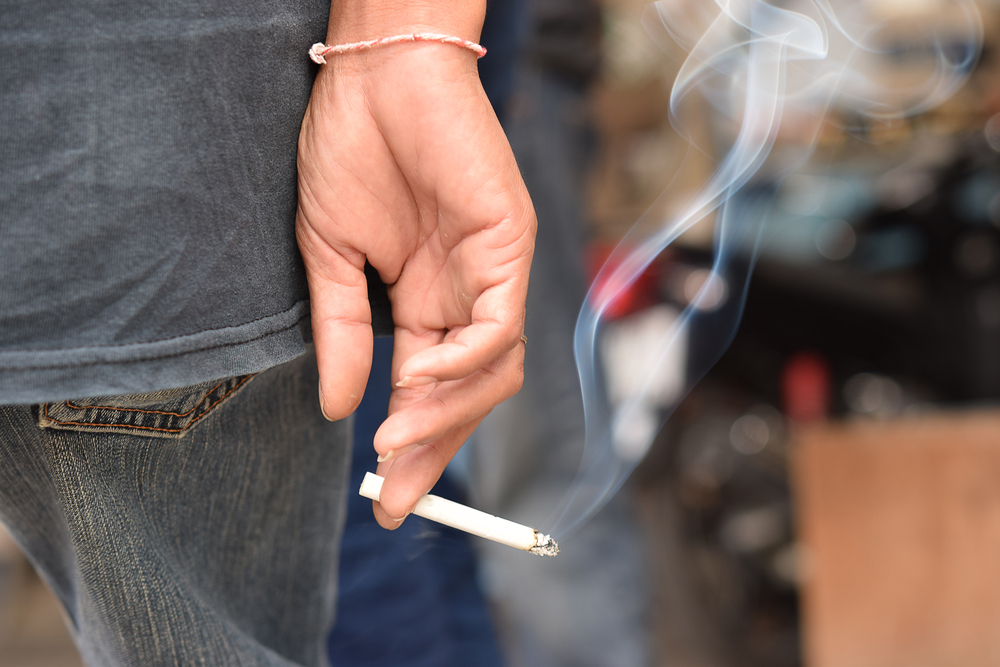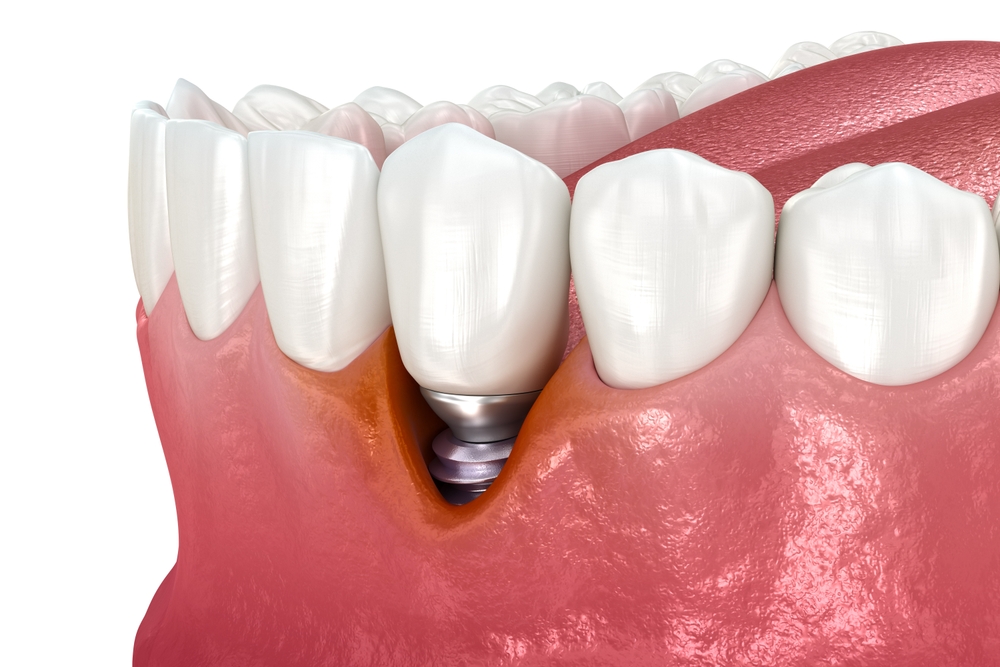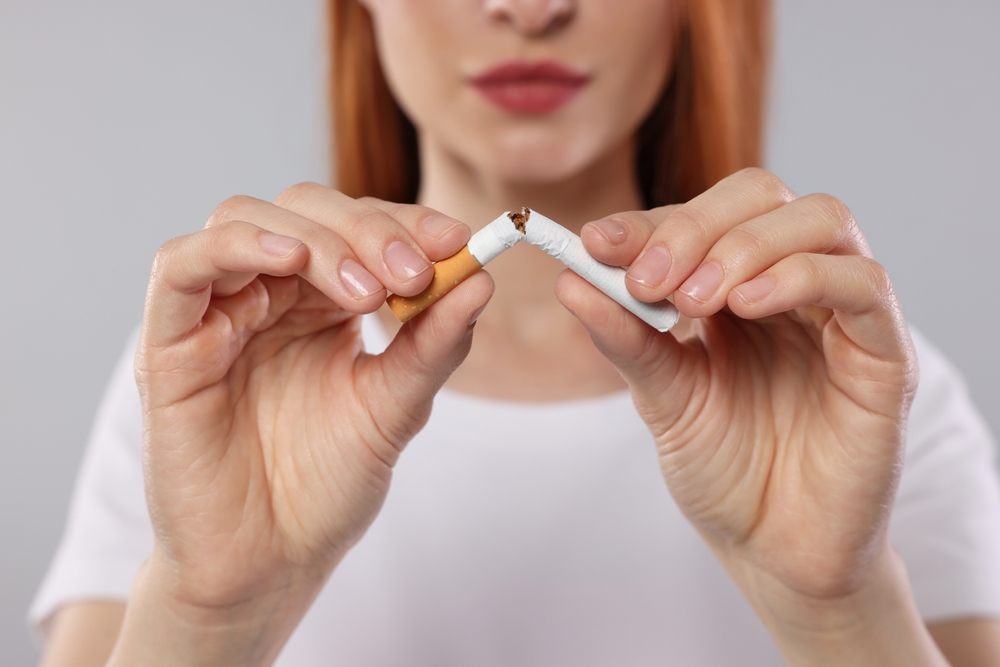How Smoking Affects Dental Implants in Melbourne, FL
Smoking's Impact on Dental Implant Treatment: What You Need to Know
Are you considering dental implants but concerned about how smoking might affect your treatment? At Solid Bite, our experienced Melbourne, FL, implant dentists, led by Dr. Lee Sheldon, Dr. Matt Sheldon, and Dr. Michel Furtado, understand your concerns about dental implant failure. We've successfully helped many patients from Melbourne, Malabar, Palm Bay, and Scottsmoor navigate the challenges of dental implant treatment, including those who smoke.
Want to learn more about smoking and dental implants, as well as why they shouldn't mix? Call our Melbourne dental practice at (321) 259-8000 to schedule your consultation.
Why Choose Solid Bite for Your Dental Implant Treatment?
At Solid Bite, we bring together top dental professionals with decades of combined experience in dental implant treatment.
Three highly skilled Melbourne implant specialists working together to ensure optimal outcomes:
- State-of-the-art technology for precise dental implant placement
- Personalized treatment plans that consider your unique oral health circumstances
- Comprehensive support for patients who need to quit smoking before treatment
- Proven track record of successful dental implant procedures
Looking for experienced dental implant providers who understand your unique needs? Contact Solid Bite at (321) 259-8000 to learn more about the challenges that come with smoking and dental implants and how to navigate them.
Understanding How Smoking Affects Your Oral Health
Smoking triggers a complex chain of biological reactions that compromise your oral health. Our Melbourne dentists at Solid Bite has extensively studied these side effects of smoking, and here's what happens:
Weakened Immune Response
Tobacco smoke contains over 7,000 chemicals that directly impact your immune system by:
- Reducing white blood cell production, your body's primary defense against infection
- Impairing neutrophils (specialized immune cells) from reaching infection sites in your mouth
- Decreasing antibody production, making it harder for your body to recognize and fight bacteria
- Disrupting the balance of healthy bacteria in your mouth, allowing harmful bacteria to thrive
Compromised Blood Flow
Nicotine acts as a vasoconstrictor, meaning it:
- Narrows your blood vessels, reducing blood flow to your gum tissue by up to 65 percent
- Decreases oxygen delivery to your oral tissues
- Limits the delivery of essential nutrients needed for healing
- Reduces the removal of harmful waste products from your oral tissues
Severe Gum Disease Risk
Smoking dramatically increases your risk of periodontal disease by:
- Creating a perfect environment for harmful bacteria to multiply
- Masking early warning signs of gum disease by reducing bleeding
- Accelerating the breakdown of supporting tissue around teeth
- Interfering with the normal healing process of gum tissue
Bone Loss in the Jaw
Smoking affects your jawbone health by:
- Reducing bone mineral density
- Decreasing blood supply to bone tissue
- Interfering with bone cell production and function
- Accelerating bone resorption (breakdown)
Delayed Healing
Every time you smoke, you:
- Reduce oxygen levels in your blood by up to 40 percent
- Impair collagen production, essential for wound healing
- Interfere with cell regeneration
- Slow down the formation of new blood vessels needed for healing
The Deep Impact of Smoking on Dental Implant Success
Compromised Healing Process
When you smoke during implant treatment:
- Blood flow to your surgical site decreases by up to 65 percent
- Healing time can extend from three to six months to six to 12 months
- Risk of wound breakdown increases significantly
- Tissue regeneration around the implant is impaired
Understanding Dental Implant Failure
Smoking interferes with osseointegration and promotes dental implant failure through multiple mechanisms:
- Nicotine prevents osteoblasts (bone-forming cells) from properly functioning
- Carbon monoxide reduces oxygen delivery to healing tissues by up to 40 percent
- Hydrogen cyanide impairs bone metabolism and formation
- The combination of these effects can triple your risk of long-term and early implant failure
The Infection Risk Factor
Smoking creates a perfect storm for infections by:
- Reducing saliva production, your mouth's natural cleanser
- Creating a more acidic oral environment
- Weakening your immune system's first-line defenses
- Allowing bacteria to multiply more rapidly around the implant site
Peri-Implantitis: A Serious Concern
This condition is particularly problematic for smokers because:
- Inflammation around the implant can progress rapidly due to reduced immune response
- Bone loss can accelerate, threatening implant stability and promoting implant failure
- Early warning signs may be masked by smoking's effects on blood flow
- Treatment becomes more challenging due to compromised healing
At Solid Bite, we've developed specialized protocols for our smoking patients:
- More frequent monitoring during the healing phase
- Advanced imaging to track bone health
- Customized cleaning protocols
- Intensive periodontal maintenance programs
Want to learn more about how we can help you achieve successful implants despite smoking? Call our Melbourne office at (321) 259-8000 to schedule a consultation. We'll create a personalized treatment plan that addresses your specific needs and helps you achieve the best possible outcome.
Warning Signs of Dental Implant Complications
At Solid Bite, our experienced implant team wants you to understand exactly what to watch for after your dental implant surgery. Here's a detailed breakdown of each warning sign and why it matters:
Unusual Pain or Discomfort
While some discomfort is normal immediately after implant surgery, certain types of pain can indicate problems:
- Sharp, radiating pain that develops after initial healing may indicate nerve irritation
- Intense pressure or throbbing could suggest infection around the dental implant
- Pain that increases rather than decreases over time often signals inflammation
- Sudden pain during biting might indicate the dental implant hasn't properly fused with the bone
Bleeding or Inflamed Gums
Your gums provide crucial protection for your dental implant. Changes in gum health can signal serious issues:
- Bright red or purple gum tissue around the dental implant suggests active inflammation
- Spontaneous bleeding, especially after initial healing, indicates potential infection
- Swollen, puffy gums that feel tender could mean your body is fighting bacteria
- Gums that look shiny or stretched might signal pressure from underlying infection
Difficulty Chewing or Biting
Changes in how your dental implant feels during normal use often indicate problems:
- Discomfort when putting pressure on the dental implant might mean it's becoming loose
- Changes in how your bite feels could indicate shifting of the dental implant
- Sensitivity to hot or cold after complete healing may suggest exposed dental implant components
- A feeling that your teeth don't come together properly could mean the dental implant has moved
Visible Implant Movement
A successful dental implant should be as stable as a natural tooth. Any movement is concerning and a likely sign of implant failure:
- Even slight wiggling of the implant indicates failed osseointegration
- Movement of the crown (visible portion) might mean the connecting components are loose
- Changes in the implant's position relative to other teeth suggest bone loss
- Feeling the dental implant shift when eating or speaking requires immediate attention
Receding Gum Line
Healthy gums should maintain a stable position around your dental implant:
- Exposure of the metal dental implant post indicates significant gum recession
- Visible darkening of the gum line might mean the metal is showing through thinning tissue
- Uneven gum levels between the dental implant and natural teeth suggest tissue loss
- Progressive gum recession can lead to bone loss and dental implant failure
Persistent Bad Taste or Breath
These symptoms often indicate infection or bacterial buildup:
- A metallic taste could mean dental implant corrosion or deterioration
- Persistent bad breath that doesn't improve with brushing suggests a hidden infection
- An unusual taste that develops around the implant area indicates bacterial growth
- A sour or bitter taste might signal the presence of pus from infection
Immediate Action Steps
If you notice any of these warning signs, take these steps:
- Call Solid Bite Immediately: Contact our Melbourne office at (321) 259-8000 for prompt evaluation
- Document Your Symptoms: Note when they started and any changes
- Maintain Careful Hygiene: Continue gentle cleaning around the implant
- Avoid Pressure: Try not to chew on the affected side
- Don't Wait: Early intervention can often save the dental implant from implant failure
Your Path to Successful Dental Implant Treatment
At Solid Bite, we are committed to ensuring the long-term success of your dental implants. A crucial factor in this success is following best practices before, during, and after your dental implant surgery. To maximize the likelihood of a smooth healing process and a strong implant foundation, we recommend the following steps:
Quit Smoking at Least Two Weeks Before Your Dental Implant Surgery
Smoking restricts blood flow and reduces oxygen levels in the bloodstream, both of which are essential for proper healing. By quitting at least two weeks before your implant surgery, you allow your body to begin the recovery process, improving circulation and preparing the jawbone and gum tissue for the procedure.
Maintain a Smoke-Free Period Throughout Your Dental Implant Healing Process
The weeks and months following your implant placement are critical for osseointegration—the process in which the implant fuses with your jawbone. Smoking during this period can lead to:
- Delayed healing due to poor blood supply
- Increased risk of infection from harmful chemicals in tobacco
- Higher dental implant failure rates because smoking weakens bone integration
By staying smoke-free, you give your implant the best chance of bonding properly with your jawbone.
Work With Our Team to Develop a Personalized Quitting Strategy
We understand that quitting smoking is challenging, and we are here to support you. Our team can provide resources, recommend cessation aids, and create a customized plan to help you stay smoke-free before and after your implant procedure. This proactive approach significantly increases the chances of a successful outcome.
Attend Regular Check-Ups to Monitor Your Healing Progress
Routine follow-up appointments allow us to assess the health of your gums, bone integration, and overall implant stability. Early detection of any potential issues, such as gum inflammation or infection, enables us to take corrective action before complications arise.
Follow Our Detailed Post-Operative Care Instructions
Proper post-surgical care is essential to avoid complications. Our team will provide step-by-step guidance on:
- Keeping the surgical site clean to prevent infection
- Managing discomfort and swelling with recommended medications and cold therapy
- Eating soft foods that promote healing and avoid excessive pressure on the implant
- Practicing excellent oral hygiene to support long-term implant success
By following these guidelines, you help create the ideal conditions for your dental implant to heal properly and last for years to come. If you have any questions or need additional support, don’t hesitate to reach out to our team.
Frequently Asked Questions
Take the First Step Toward Your New Smile
At Solid Bite, we're committed to helping patients from Melbourne, Malabar, Palm Bay, and Scottsmoor achieve successful dental implant outcomes. Our experienced team understands the challenges smokers who want dental implants face and provides the support needed for optimal results.
Ready to transform your smile or want to learn more about the potential problems with dental implants and smoking? Contact our Melbourne office at (321) 259-8000 to schedule your consultation. Let us show you why patients throughout Brevard County trust Solid Bite for their dental implant needs.







